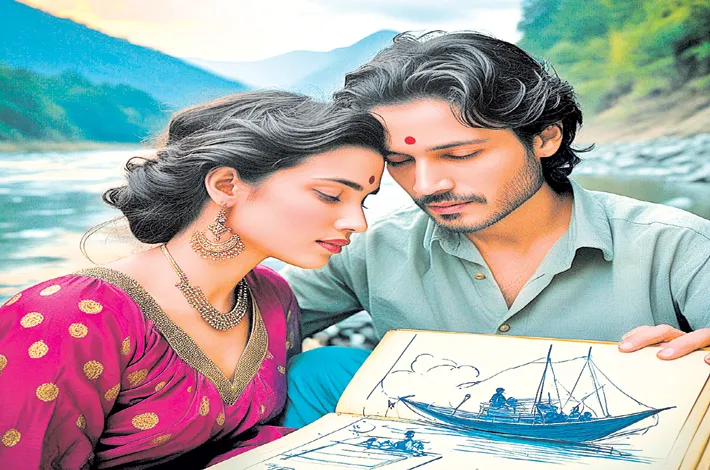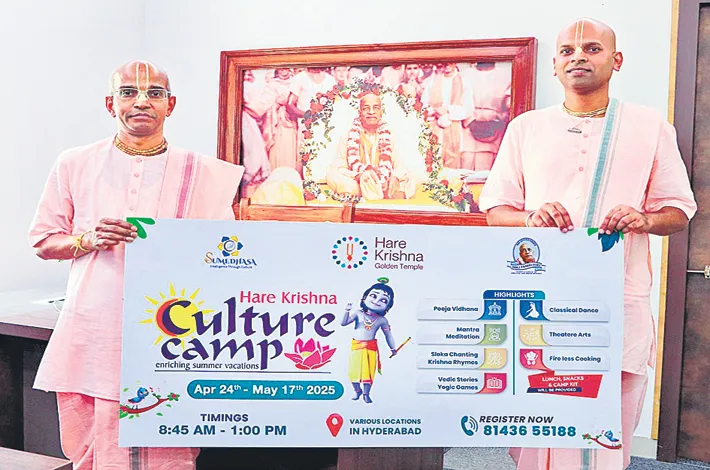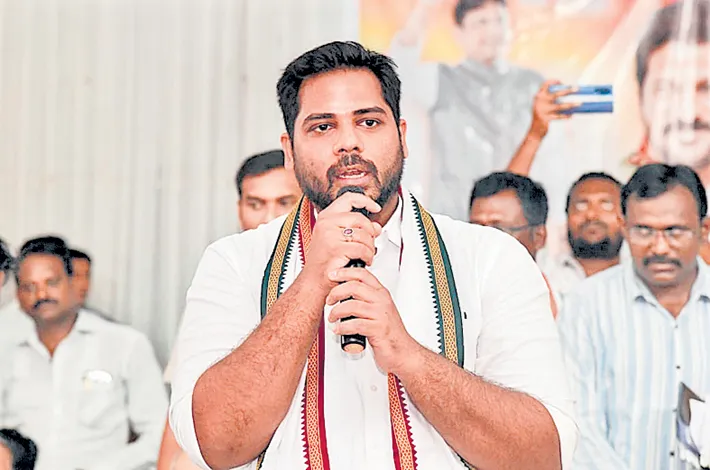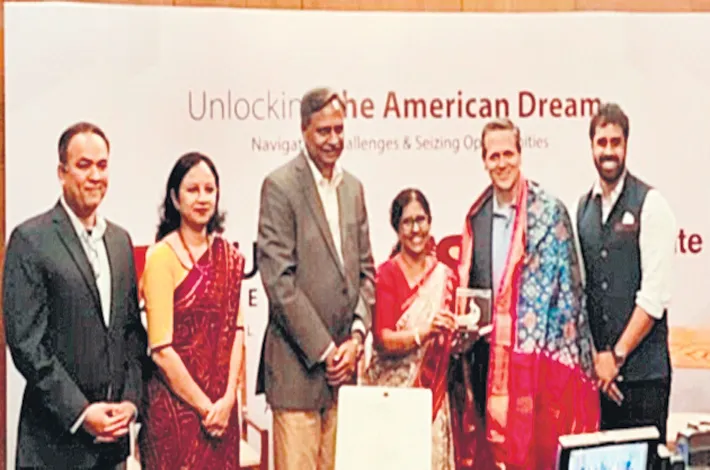Whispers of the Teesta
18-04-2025 12:00:00 AM

Anjali’s eyes shimmered with pride, but her smile faltered. “The trader’s coming tomorrow,” she said. “Baba’s set on it.” Siddharth’s jaw tightened. He took her face in his hands, the cold biting their skin. “Run away with me,” he said, the words reckless, raw. Anjali hesitated, her heart torn between love and duty. The village, the river, her family—they were her roots. Could she leave them?
In the verdant folds of Sikkim, where the Teesta River carved its restless path through misty hills, lived Anjali and Siddharth. Their small village, nestled below the snow-dusted peaks of Kanchenjunga, was a patchwork of prayer flags and terraced fields. Anjali, with her almond eyes and a laugh like temple bells, ran a tea stall near the village square. Siddharth, a quiet artist with ink-stained fingers, spent his days sketching the mountains’ moods on weathered sketchpads. They were both twenty-two, bound by dreams and the unspoken weight of tradition.
Their love began in stolen glances. Anjali would watch Siddharth from her stall as he sat by the river, charcoal smudging his hands. He’d catch her eye, smile shyly, and bury himself in his work. One monsoon evening, when the skies unleashed a torrent, Siddharth ducked into her stall, drenched and grinning. “Your tea’s the only warmth in this storm,” he said, shaking water from his hair. She laughed, handing him a steaming cup of cardamom chai. That night, under the tin roof’s rhythmic drumming, they talked until the clouds parted—about art, the stars, and the lives they wanted beyond the village’s edges.
Love bloomed quietly. Mornings found Siddharth sketching Anjali as she poured tea, her braid swaying like a pendulum. Evenings, they’d walk along the Teesta, her scarf fluttering in the breeze, his hand brushing hers. But Sikkim’s traditions loomed like the mountains. Anjali’s father, a stern farmer, had begun whispering of suitors—men with land and lineage. Siddharth, an orphan raised by his aunt, had only his sketches and a heart full of dreams. “What can you offer her?” her father demanded when Siddharth, trembling, confessed his love. “A life of struggle?”
Anjali, fierce beneath her gentle exterior, refused to bend. “I choose him,” she told her father, her voice steady as the river. But the village buzzed with judgment. Neighbors clucked about duty; elders spoke of honor. The pressure gnawed at Siddharth. He loved Anjali, but doubt crept in—could he give her the life she deserved?
One autumn day, as rhododendrons blazed red against the hills, Siddharth took Anjali to a hidden meadow. Prayer flags fluttered above, their colors vivid against the sky. He spread a shawl on the grass, and they sat, the Teesta’s murmur a soft companion. “I’m scared,” he admitted, his voice barely above a whisper. “What if I fail you?” Anjali took his hand, her fingers warm against his calluses. “You’re my home, Sid. Not a house, not land—you.” Her words, simple and sure, anchored him.
But reality pressed harder. Anjali’s father arranged a meeting with a wealthy trader from Gangtok. Desperate, Siddharth poured his heart into his art. He sketched day and night, capturing Sikkim’s soul—the mist curling over peaks, monks chanting in monasteries, the Teesta’s ceaseless dance. He sent his work to a gallery in Delhi, a long shot born of hope. Anjali, meanwhile, stalled her father with excuses, her defiance a quiet rebellion.
Winter crept in, dusting the village with frost. On the night of Losoong, Sikkim’s harvest festival, the village glowed with butter lamps and laughter. Anjali, in a crimson bakhu, served tea at the festival, her eyes searching for Siddharth. He arrived late, breathless, a letter clutched in his hand. The Delhi gallery had accepted his work. They wanted an exhibition. “It’s a start,” he said, pulling her behind a prayer wheel, away from prying eyes. “I can build something—for us.”
Anjali’s eyes shimmered with pride, but her smile faltered. “The trader’s coming tomorrow,” she said. “Baba’s set on it.” Siddharth’s jaw tightened. He took her face in his hands, the cold biting their skin. “Run away with me,” he said, the words reckless, raw. Anjali hesitated, her heart torn between love and duty. The village, the river, her family—they were her roots. Could she leave them?
That night, unable to sleep, Anjali walked to the Teesta’s edge. The river’s song was steady, eternal. She thought of her mother, who’d died when she was young, and the stories she’d told of love that defied odds. Siddharth found her there, his scarf loose around his neck. “I won’t force you,” he said. “But I’ll fight for you, always.” Anjali turned to him, her decision clear in the moonlight. “We’ll fight together.”
The next morning, as the trader’s car rolled into the village, Anjali faced her father. Siddharth stood beside her, his sketches spread on the table—a testament to his dreams. “This is my choice,” she said, her voice unwavering. “He’s my future.” Her father’s face hardened, but her resolve held. The trader left, the village whispered, but Anjali and Siddharth stood firm.
Months later, Siddharth’s exhibition in Delhi was a quiet success. His sketches sold, each one a piece of Sikkim’s heart. Anjali, now his wife, stood beside him at the gallery, her laughter brighter than the city lights. They returned to Sikkim, not to their village, but to a small house by the Teesta, where prayer flags danced and the river sang. Siddharth painted; Anjali grew a garden. Their love, forged in whispers and courage, was as enduring as the mountains.
And every evening, as the sun dipped behind Kanchenjunga, they’d sit by the river, her head on his shoulder, his sketches beside them. The Teesta carried their story downstream, a quiet hymn of love that needed no words.








